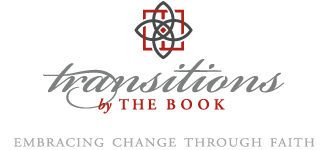For the last several months, I have become increasingly aware of a number of situations where families have been dealing with painful issues – including fighting among themselves. Sometimes, innocent bystanders are pulled into the mix and can even become victims of the dysfunctional environments they are exposed to. The net effect is that there are people in the world who are out for themselves and relish taking advantage of others; and usually it involves money. And therein lies the tale for this evening.
Usually this behavior is perpetrated by people who have low self esteem and find that they must harass others to make up for their own inadequacies – my behavioral studies in seminary showed that these issues are usually work related for men and relationally motivated in women. In years of career transition work, more than 91% of men we have assisted profess that their identity came from their work – a loss of employment put strains on their marriages and causes them a loss of identity. Women, who are usually more concerned with relationships than with work, still statistically worry about money when their spouses are out of work and this can exacerbate the problems already present in the relationship.
Suffice it to say that many times we get drawn into difficult circumstances and are sometimes even called upon to arbitrate family disagreements. And rarely do we escape from those situations without suffering negative consequences. Whether you are asked to choose sides in a messy divorce, or endorse somebody who is clearly substandard in the workplace, we are put into the position of making choices. And emotions run deep when dealing with friendships, business acquaintances and so many other times when we are called upon to make judgements about who we will support – and who we will not.
So what should our response be when we are confronted with these difficult choices? Or what should we do when we are harmed in the process of trying to do right? Because many times, we pay a price as bystanders for just being in the wrong place at the wrong time. Our default setting is that we want to protect ourselves and/or lash out at others but if we study the Scripture and the ways of Jesus, we will find that our initial response probably isn’t the one that is the most God centered.
I know that I struggle with this all the time. I get many calls and when I am hurt in the process, I want to lash out and seek retribution. After all, I’m just trying to help. But as ambassadors of the living God, this isn’t the behavior that we should be exhibiting. Because then, we are no better than the people who have hurt us. Luke, in his Gospel, challenges us to turn the other cheek. in Luke 6:29, we are told, “If someone strikes you on one cheek, turn to him the other also. If someone takes your cloak, do not stop him from taking your tunic.” Many people don’t really understand the meaning of this verse. The intent here is that by going further than is required by the circumstance, the person will realize that you serve a higher power – God – and that you will not be bound by the things of the earth.
Peter, an apostle, tells us in his first epistle, in 1 Peter 3:9, “Do not repay evil with evil or insult with insult, but with blessing, because to this you were called so that you may inherit a blessing.” So not only do we serve God, we can expect a blessing when we take the higher road. This is a great thing to remember the next time you are in a situation where you are trying to determine your next steps. Always choose the higher road.
My encouragement this evening is that God is proud of us when we choose to do the right thing – the God centered thing. My prayer is that you will have the courage and conviction to make sure that you always represent the Kingdom of God in a way honoring the Father and His Son. Have a great day in the Lord, grace and peace…
